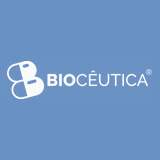Vitamin B12, also known as cobalamin, is a water-soluble vitamin that plays a critical role in maintaining our energy levels and supporting mental health. It is an essential nutrient that contributes to the production of red blood cells, DNA synthesis, and the proper functioning of the nervous system. Despite its importance, Vitamin B12 often escapes the attention it deserves, frequently leading to deficiencies that can have far-reaching consequences on both physical and mental well-being.
The Role of Vitamin B12 in the Body
Energy Production
One of the most recognized functions of Vitamin B12 is its involvement in energy metabolism. This vitamin is crucial for the conversion of food into glucose, which is then used by the body as a primary source of energy. Specifically, Vitamin B12 helps in the conversion of fatty acids and amino acids into energy. Without adequate amounts of B12, the body struggles to produce energy efficiently, leading to fatigue and lethargy.
Red Blood Cell Formation
Vitamin B12 also plays a significant role in the formation of red blood cells. These cells are responsible for transporting oxygen from the lungs to every tissue and organ in the body. A deficiency in Vitamin B12 can lead to a type of anemia known as megaloblastic anemia, characterized by the production of large, improperly functioning red blood cells. This condition typically results in profound fatigue and weakness since the body’s ability to transport oxygen is impaired.
Neuroprotection and Mental Health
Beyond its physical health benefits, Vitamin B12 is essential for mental well-being. It supports the maintenance of healthy neurons and is involved in the production of neurotransmitters, such as serotonin and dopamine, which regulate mood and emotional responses. Studies have suggested a link between low levels of Vitamin B12 and an increased risk of depression, anxiety, and cognitive decline.
DNA Synthesis
Another critical function of Vitamin B12 is its role in DNA synthesis. The vitamin acts as a co-factor for enzymes involved in the synthesis and repair of DNA. This is particularly essential for the rapid cell division and replication processes that occur in our bodies, including during periods of growth and recovery from illness.
Sources of Vitamin B12
Vitamin B12 is primarily found in animal-based foods, making it particularly important for individuals following a vegetarian or vegan diet. Here are some of the best sources of Vitamin B12:
-
Meat: Beef, lamb, and pork are rich in B12. High-quality cuts, including liver, are especially high in concentration.
-
Poultry: Chicken and turkey are good sources of this essential nutrient.
-
Fish and Seafood: Varieties such as salmon, trout, shellfish, and tuna not only offer a healthy amount of B12 but are also high in omega-3 fatty acids.
-
Dairy Products: Milk, cheese, and yogurt provide a nutritious way to obtain B12 along with calcium and protein.
-
Eggs: These are another excellent source of Vitamin B12, especially the yolks.
- Fortified Foods: For those following a plant-based diet, fortified cereals, plant-based milk alternatives, and nutritional yeast provide an accessible means of getting B12.
Causes of Vitamin B12 Deficiency
Despite the availability of B12 in our diets, various factors can lead to deficiency:
Dietary Restrictions
Individuals following vegan or strict vegetarian diets may not consume sufficient B12 through food sources. As B12 is predominantly found in animal products, those who forego meat and dairy entirely must be especially vigilant in obtaining this nutrient through fortified foods or supplements.
Absorption Issues
Certain medical conditions, such as pernicious anemia, Crohn’s disease, celiac disease, and gastric bypass surgery, can impair the body’s ability to absorb vitamin B12. In these cases, individuals may consume adequate amounts of B12, but the nutrient may not be absorbed efficiently.
Age Factor
As people age, the stomach produces less stomach acid, which is necessary for the absorption of Vitamin B12. This can lead to deficiencies, especially in older adults who consume minimal amounts of B12-rich foods.
Medications
Certain medications can interfere with Vitamin B12 absorption. For example, proton pump inhibitors and metformin are known to impact B12 levels in the body, leading to potential deficiencies.
Signs and Symptoms of Deficiency
Vitamin B12 deficiency can present itself in various ways, ranging from mild to severe. Common symptoms include:
Physical Symptoms
-
Fatigue and Weakness: Since B12 is fundamental in energy production and red blood cell formation, its deficiency often leads to feelings of exhaustion.
-
Pale or Jaundiced Skin: Anemia can result in pale skin due to insufficient red blood cells, while other individuals may notice a yellowish tint in their skin or eyes.
-
Nerve Damage: Individuals may experience tingling or numbness in their hands and feet, a condition known as peripheral neuropathy.
- Difficulty Walking: Balance issues and coordination problems may arise, leading to an increased risk of falls.
Mental Health Symptoms
-
Mood Changes: Low B12 levels may lead to irritability, mood swings, or feelings of sadness.
-
Cognitive Decline: Long-term deficiencies can contribute to memory loss and difficulty concentrating, posing risks for cognitive decline and dementia in older individuals.
- Depression and Anxiety: Studies have shown that low B12 levels can be correlated with heightened instances of anxiety and depression.
Diagnosing Vitamin B12 Deficiency
Diagnosis usually begins with a comprehensive evaluation, including a review of dietary habits and medical history. Common tests include:
-
Blood Tests: Measuring levels of Vitamin B12 in the blood can determine whether deficiency is present.
-
Methylmalonic Acid (MMA): Elevated levels of MMA may indicate a Vitamin B12 deficiency, as this substance accumulates when B12 is insufficient.
- Homocysteine Levels: An increased level of homocysteine can signal a problem with B12 metabolism.
Treatment and Prevention of Deficiency
Dietary Changes
For those with dietary restrictions, incorporating fortified foods can help prevent deficiency. People consuming animal products should aim to include a variety of B12 sources in their diet.
Supplements
For individuals unable to obtain sufficient B12 from dietary sources, supplementation may be necessary. Available in oral forms, sublingual tablets, and injections, supplements can restore optimal levels based on individual needs.
Regular Check-Ups
Regular health check-ups are vital, especially for older adults and those with medical conditions affecting absorption. Blood tests can be an effective means of monitoring Vitamin B12 levels.
Conclusion
Vitamin B12 is an indispensable nutrient that supports energy production, red blood cell formation, neural protection, and DNA synthesis. Its multifaceted role makes it crucial for both physical and mental well-being. Recognizing the signs of deficiency and understanding sources and causes can help individuals take proactive steps towards maintaining their health. By ensuring adequate intake through diet and supplements when necessary, people can bolster their energy levels and foster mental resilience.
FAQs
What is Vitamin B12 Good For?
Vitamin B12 supports energy production, enhances red blood cell formation, aids in DNA synthesis, and promotes nerve health. It also plays a critical role in mental health by contributing to the production of neurotransmitters.
What Foods Are High in Vitamin B12?
Foods rich in Vitamin B12 include meat (especially liver), poultry, fish (like salmon and trout), dairy products, eggs, and fortified cereals and plant milk.
Who Is at Risk for Vitamin B12 Deficiency?
Individuals at risk for Vitamin B12 deficiency include vegetarians and vegans, older adults, people with certain medical conditions (like pernicious anemia, Crohn’s disease), and those taking specific medications.
How Can I Increase My Vitamin B12 Intake?
You can increase your Vitamin B12 intake by consuming more animal products, fortified foods, and, if necessary, taking supplements or receiving injections as recommended by a healthcare professional.
What Are the Symptoms of Vitamin B12 Deficiency?
Symptoms of Vitamin B12 deficiency may include fatigue, weakness, pale or jaundiced skin, numbness or tingling in the hands and feet, mood changes, cognitive decline, and an increased risk of depression and anxiety.
How Do I Get Tested for Vitamin B12 Deficiency?
Vitamin B12 deficiency can be diagnosed through blood tests that measure B12 levels or assess methylmalonic acid (MMA) and homocysteine levels. A healthcare professional can provide recommendations based on symptoms and dietary habits.
By understanding the critical role Vitamin B12 plays in our bodies and ensuring adequate intake, we can enhance our overall energy levels and mental well-being.
Sure, I can help with that! However, it looks like you haven’t provided an article title or topic for me to work with. Please provide the title or subject you’d like me to write about, and I’ll create 10 paragraphs based on that!




